Tina Yuan
Did you know that Taiwan is home to one-third of the world’s coral reef species? These colourful reefs draw divers from around the world to the islands around Taiwan. However, in recent years, climate change and pollution have damaged ocean ecosystems with major coral bleaching events, which are occurring year after year.
Former Greenpeace East Asia Taiwan fundraiser Xu Jiaquan – also known as Shrimp Roll to his friends – now works as a dive instructor on Green Island and shared with us what he has witnessed over the years.
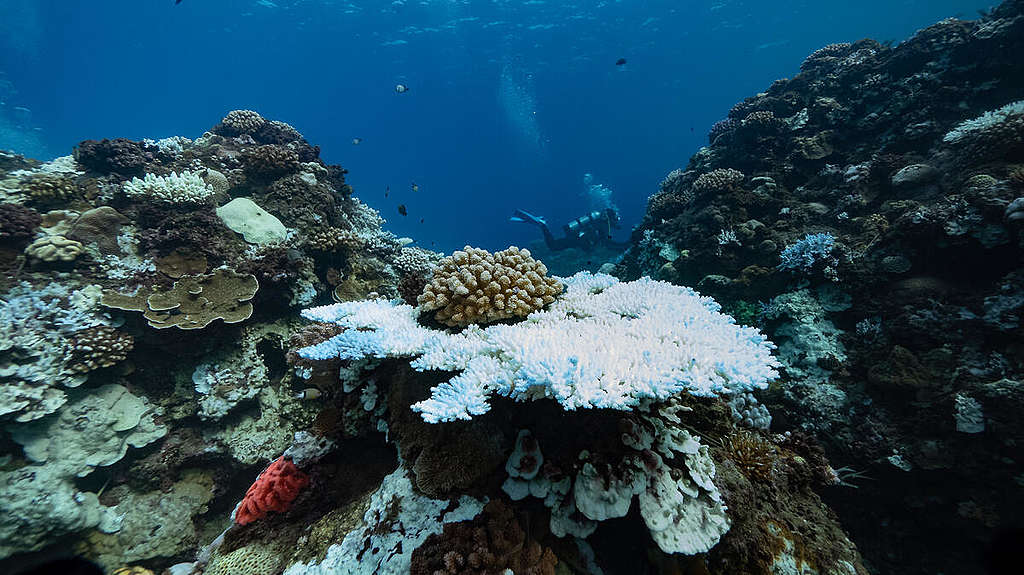
Although Taiwan is small, its marine ecology is very diverse. In the
past, Taiwan was known as the “Coral Kingdom.” One-third of the world’s
coral reef species can be found in Taiwan. The biggest coral reefs are
located near Kenting, Green Island, and Orchid Island.
Xu
Jiaquan, or ‘Shrimp Roll’ as he is known to his friends, loves diving.
Previously, he was a fundraiser for Greenpeace East Asia Taiwan. Now, he
is a full-time diving instructor on Green Island – a small, lush island
off of Taiwan’s east coast.
Shrimp Roll first visited Green
Island in 2000 and got a glimpse of the area’s thriving marine
ecosystem. He was awestruck. But since then he has witnessed the
degradation of the local ecology due to global heating and environmental
destruction.
Life as a diving instructor
“I really liked water activities as a kid. In high school I taught swimming, followed by surfing for a while, and then I discovered diving,” Shrimp Roll recalled.
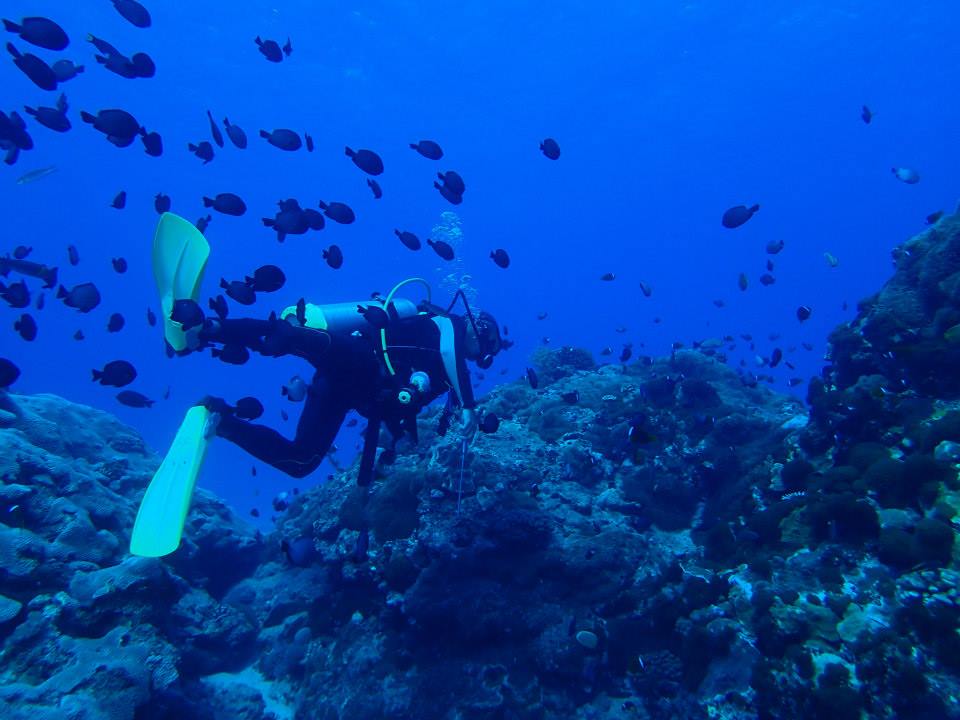
“I love travelling, and diving is a great activity along the way. The ocean is beautiful, and it feels magical to have ocean activities as a part of your life.”
Later Shrimp Roll decided to leave the city and move to Green Island. “Many people work very hard. They only have one or two days off a week. So they choose to spend their free time at home.”
It wasn’t until Shrimp Roll went diving abroad in 2016 that he discovered that Taiwan’s marine environment is unique.
“I
didn’t think Taiwan was particularly beautiful before, but after
travelling to other countries, I realised Taiwan has great natural
scenery. Taiwan’s landscape and wildlife are very diverse compared to
many other countries.”
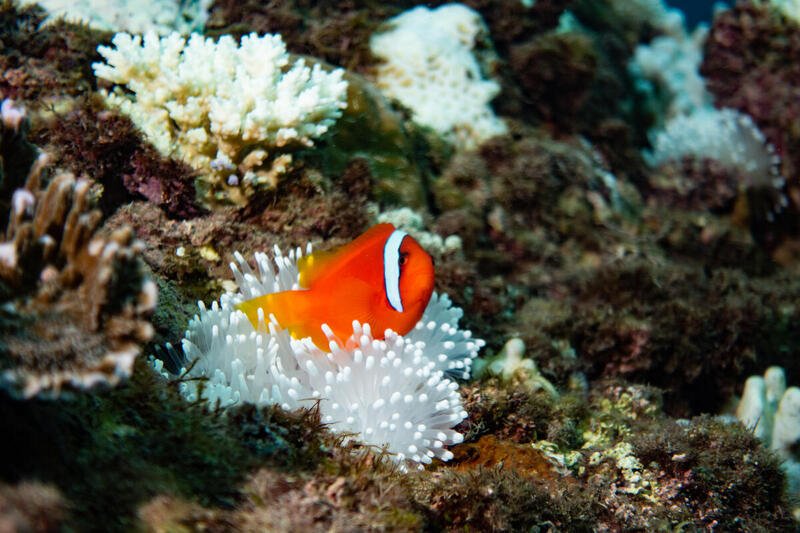
The beautiful marine world is under threat
Shrimp Roll has found that in recent years the ecology of the ocean has changed.
“When I first got into diving, the water temperature during the winter season was around 19 to 20 degrees Celsius. Over the last three or four years, the water temperature has increased. The average temperature is now about 23 to 24 degrees,” according to Shrimp roll.
“The ocean temperature during summer is now higher than average, causing coral bleaching in Taiwan. After the coral bleaching event in 2014, three more intense bleaching events occurred in 2016, 2017, and 2019. In July of this year, the area of bleaching was so enormous that it made you think, ‘How is such a striking change even possible?’”
Shrimp Roll said that he had never seen a worse situation in person. He had seen pictures on news reports, but he did not expect it to happen in Taiwan, especially on such a massive scale.
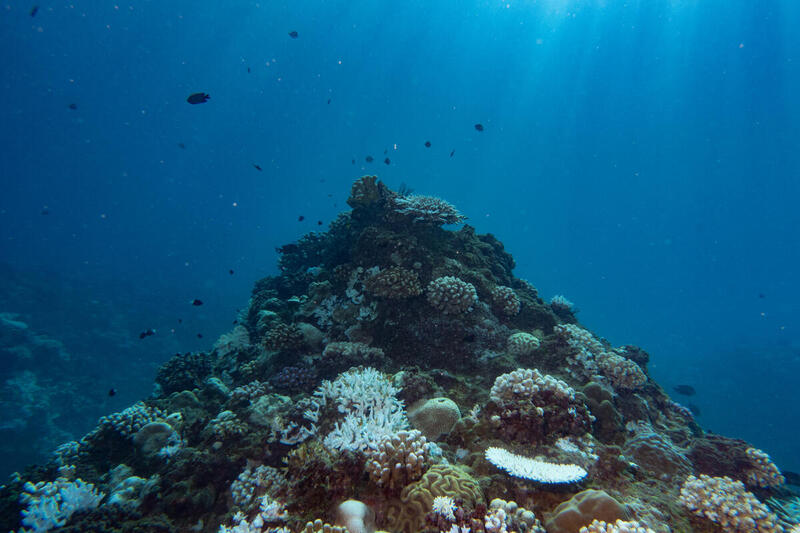
To be clear, coral bleaching does not mean that the corals die off.
Instead, changes including rising water temperatures, pH changes, and
turbidity cause symbiotic algae to abandon the coral, taking the color
with them. So only the bare skeletons of the corals are left.
“The
death of corals isn’t instant – there is a period of change. But when
you see coral bleaching happen, there is no immediate way to save the
coral.
For example, if you see a stray dog on the road that is injured, you can seek medical treatment for the animal, and there is a chance that the dog can be saved. But in the ocean, phenomena like coral bleaching involve many factors. I’m saddened to see so much coral bleaching recently because coral’s survival depends on the water temperature.”
What do changing ocean temperatures mean for the ecosystem?
Shrimp Roll uses an analogy: “For the average person, a water temperature increase of two or three degrees doesn’t make a huge difference. But if your body temperature were to increase by two or three degrees, you would come down with a fever and feel very ill. You might have to go to the hospital for treatment. The temperature increase could harm your body, and this is exactly the case with the ocean and the corals.”
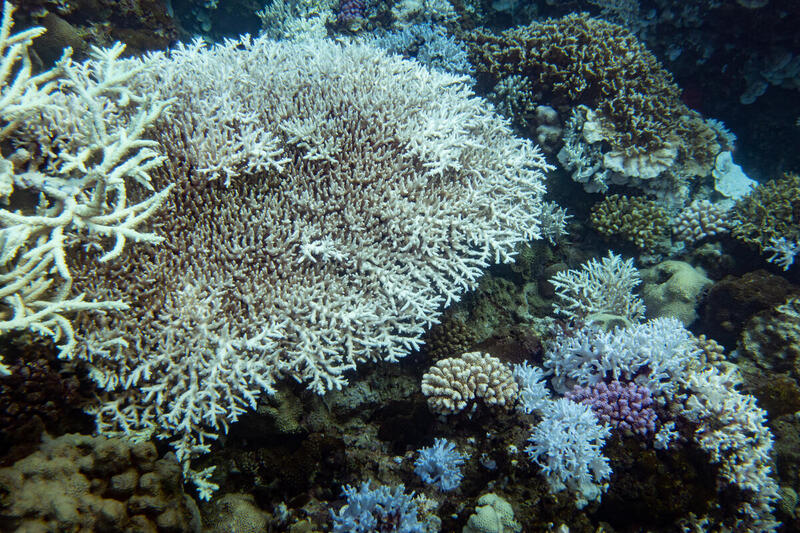
Inspiring students to protect the ocean
Shrimp Rolls originally joined Greenpeace East Asia Taiwan because he learned that the marine environment was changing and wanted to do something about it. Now as a full-time diving instructor, he continues to share his knowledge about environmental protection.
Many of his students comment on how beautiful the corals are, Shrimp Roll said. But sometimes he can’t help but respond, “In fact, it was more beautiful before.
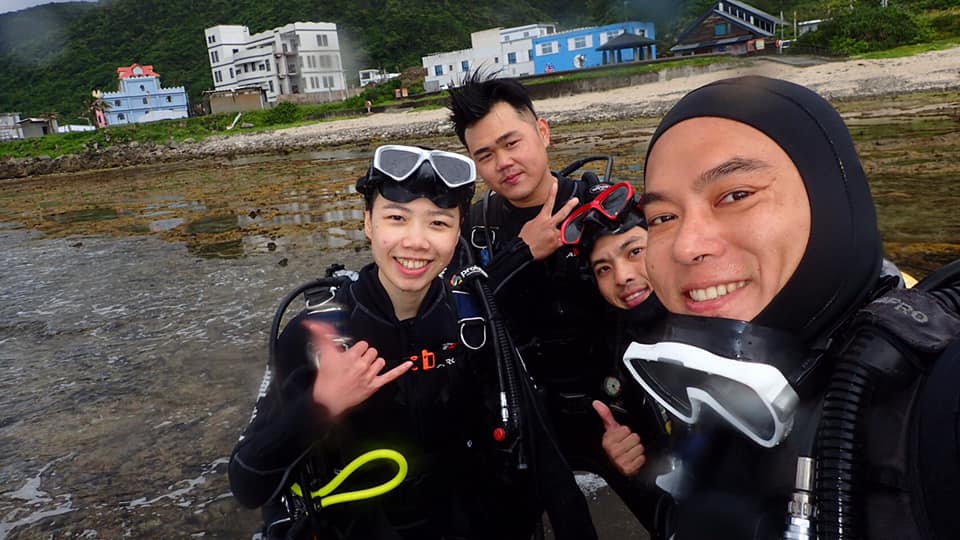
According to Shrimp Roll, many people do not know how beautiful the
coral reefs used to be and don’t immediately recognize the relationship
between coral bleaching and climate change. But Shrimp Rolls says he
will not stop speaking up for the ocean.
“When the degree of
concern for the environment is not very high, there is no way forward.
Let’s talk about climate and environmental changes right away. We can
talk about the relatively visible garbage first.
Green Island cannot sustain this amount of garbage. The trash is transported back to the main island of Taiwan for disposal, but the counties and cities on the main island will give priority to the treatment of local garbage. Then inevitably, the trash from the smaller islands end up dumped in landfills and could still end up in the ocean.”
This is why Shrimp Roll encourages divers to cut down on any unnecessary trash. For example, when buying drinks or snacks from small vendors, he will bring his own cup or pot for the vendors to put food and drink in them.
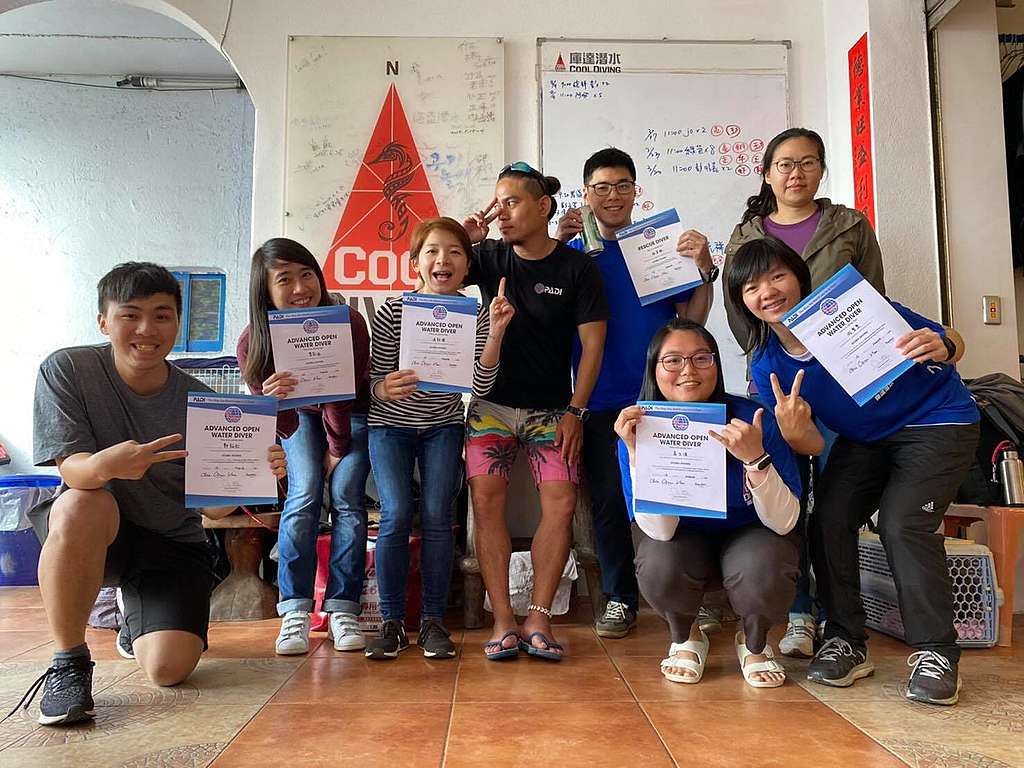
Protecting the ocean by taking action
As Shrimp Roll said, the reasons behind the changes to the marine environment are complex and cannot be addressed by individuals or one solution alone. But we all have the ability to help slow climate change and protect the ocean.
Whether it is supporting a full phase-out of carbon-intensive fossil fuels, contributing to the energy transition, pushing governments to adopt policies that combat climate change, sharing climate information with your relatives and friends, or supporting Greenpeace climate and energy projects, every single action you take can and will make a huge difference.
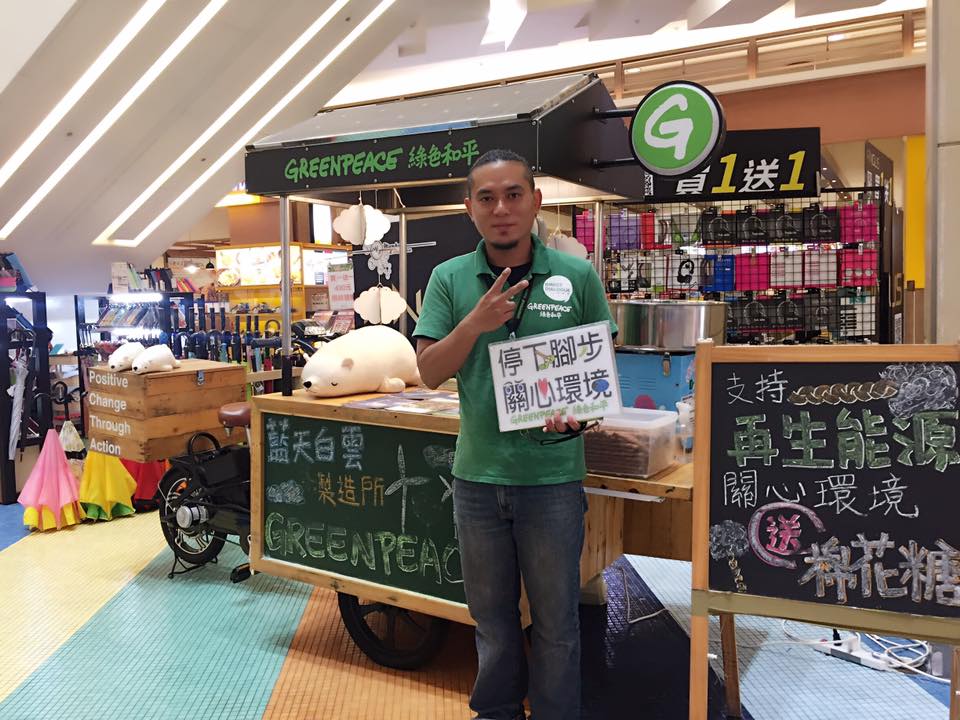
In the words of Shrimp Roll:
“The environment you see now is
very beautiful. If we still hope to see and experience it in the future,
we must think about what we can do to maintain the environment. Our
behaviours may consume more resources than we think, and there is a
price to be paid. In our lifetimes we must think about how much effort
we have put in to protect our environment, instead of complaining about
how the environment has changed.”
We hope that one day, thanks to everyone’s efforts, the coral reefs will return to their splendour and beauty, and the ocean will be brimming with life.
Tina Yuan is Senior Content Editor at Greenpeace Taiwan.

No comments:
Post a Comment
Note: Only a member of this blog may post a comment.